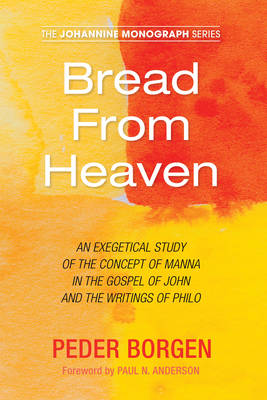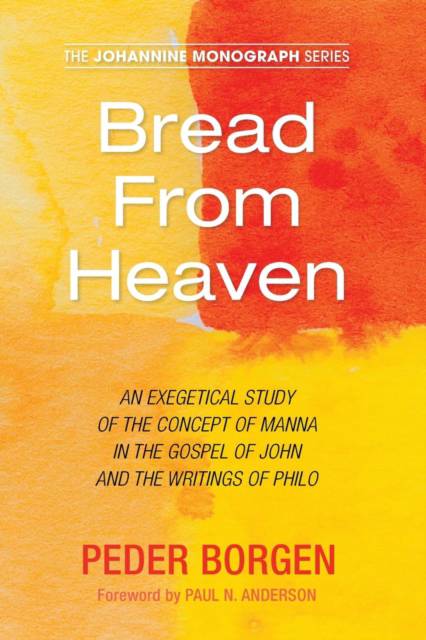
- Afhalen na 1 uur in een winkel met voorraad
- Gratis thuislevering in België vanaf € 30
- Ruim aanbod met 7 miljoen producten
- Afhalen na 1 uur in een winkel met voorraad
- Gratis thuislevering in België vanaf € 30
- Ruim aanbod met 7 miljoen producten
Zoeken
Omschrijving
If John 6 can be considered ""the Grand Central Station of Johannine Critical issues,"" Peder Borgen's 1965 monograph, Bread from Heaven, proved to be one of the most incisive and important monographs on that difficult chapter. With extensive implications for addressing a host of other New Testament issues--including the unity and disunity of John's narrative, relations between Johannine and Synoptic traditions, and the socio-religious context of the Fourth Gospel--Borgen's work argues hard for a unitive view of the Johannine text. Rather than seeing John's story of Jesus as an amalgam of disparate sources, or as dependent on the Synoptics, Borgen explores a number of commonalities between contemporary Jewish writings, including the writings of Philo and haggadic midrashim. In so doing, new glimpses are also availed onto the dialectical Johannine situation, including an antidocetic thrust as well as Johannine-synagogue engagements. The enduring impact of Borgen's work shows the Fourth Gospel to represent a self-standing tradition, characterized by Jewish engagements of biblical texts, contributing to homiletic expansions upon memories of the ministry of Jesus for later generations. --From the Foreword by Paul N. Anderson
Specificaties
Betrokkenen
- Auteur(s):
- Uitgeverij:
Inhoud
- Aantal bladzijden:
- 268
- Taal:
- Engels
- Reeks:
- Reeksnummer:
- nr. 4
Eigenschappen
- Productcode (EAN):
- 9781498288859
- Verschijningsdatum:
- 1/04/2017
- Uitvoering:
- Paperback
- Formaat:
- Trade paperback (VS)
- Afmetingen:
- 150 mm x 226 mm
- Gewicht:
- 376 g

Alleen bij Standaard Boekhandel
+ 69 punten op je klantenkaart van Standaard Boekhandel
Beoordelingen
We publiceren alleen reviews die voldoen aan de voorwaarden voor reviews. Bekijk onze voorwaarden voor reviews.











